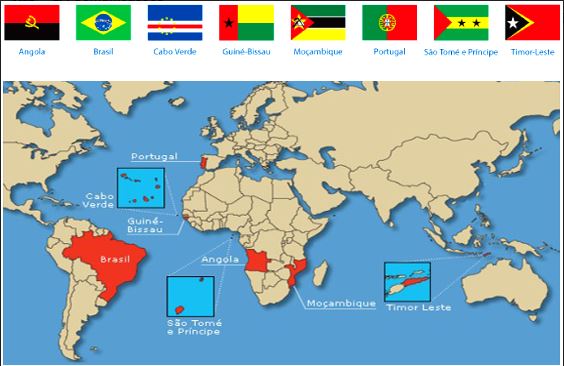Portuguese Foreign Minister João Gomes Cravinho said today that economic and business cooperation in the Community of Portuguese-Speaking Countries (CPLP) should be deepened because the more robust the Community’s capacity to act, “the more valuable it will be.”
Speaking at the 12th Parliamentary CPLP Assembly, which is taking place from yesterday to Tuesday in Portugal, João Gomes Cravinho said that the organization is facing a phase marked by “high expectations” of citizens.
For the head of Portuguese diplomacy, the mobility agreement is a “milestone” for the free movement of goods, services, and people between the member states of the CPLP, which raises “many good questions.”

According to him, the member states of the Community “should know how to respond to achieve the gradual construction of a true citizenship of the CPLP.”
Gomes Cravinho said the CPLP should strengthen economic and business cooperation among member states.
“The strong impetus given to economic and business cooperation is certainly something we now need to deepen,” he said, saying that the “recently approved strategic agenda to consolidate economic cooperation in the CPLP is a good working basis” for this plan.
The foreign minister also said that “initiatives as simple as valuing lusophony” in regional economic communities, “developing lusophone strategic partnerships” to reach new markets, or “using intellectual property with lusophone roots” are other aspects that would allow strengthening economic cooperation in the CPLP.
“It may seem complex, but these approaches are an inevitable part of participating in globalized economic circuits and will be less complex than with other partners and in other places, mainly because we have a common language,” he said.
Gomes Cravinho considered language sharing ” invaluable in relations between peoples and in promoting socio-economic development.”
“This value, already recognized by many, has attracted the interest of countries and international organizations,” he stressed, recalling that 32 countries have already “applied for and obtained the associate observer status.
“Lusophony has always been and will always be a dynamic fabric that is in flux and, therefore, very rich.
“The community of Portuguese-speaking countries will be more valuable the more it can act, the more ideas it exchanges, and the more people it brings together,” he said.
MOBILITY
The Executive Secretary o Community of Portuguese-Speaking Countries (CPLP), Zacarias da Costa, warned of the need to create more favorable conditions for free movement between member states.
“The signing of this agreement is not the endpoint of the process, but the starting point for the creation of a much more favorable framework, free movement,” which should now be “concretized through the adaptation of national legislation and the signing of a series of other complementary agreements.”
The parliaments of the nine member countries of the CPLP “will thus be called upon, once again and on several other occasions, to make their indispensable contribution to the construction of a CPLP that is undoubtedly a community of states and that also increasingly wants to assert itself as a community of people,” he added.
Zacarias da Costa spoke at the formal session and expressed satisfaction that Portugal recently passed a law that amends the legal regime for foreigners’ entry, stay and exit.
The CPLP Executive Secretary then spoke about the role of the organization’s Parliamentary Assembly (PA) in observing elections in member states.
“This was the case in their’s elections in Timor-Leste, Angola, and Sao Tome and Principe. I hope that this participation will be repeated in the elections in Equatorial Guinea, scheduled for November 20, for which we have received an invitation to the Parliamentary Assembly of the CPLP to form an observer mission,” he said.
EQUATORIAL GUINEA
The acting president of the CPLP Parliamentary Assembly, Guinean Cipriano Cassamá, today congratulated “the people and the government of Equatorial Guinea for finally succeeding in abolishing the death penalty.”
Cipriano Cassamá, Chairman of the Parliament of Guinea-Bissau, said that the commitment made by Equatorial Guinea in 2014 and reaffirmed in Luanda in 2021 has been “fulfilled.”
The 11th Parliamentary Assembly of the CPLP, which began on October 24 and ends today, Tuesday, has the free movement of people, goods, and services as its central theme.
The CPLP Parliamentary Assembly – currently chaired by Guinea-Bissau – was established in 2007 and brought together representatives of all the organization’s parliaments.
It aims to “strengthen solidarity and cooperation” and comprises democratically elected deputies appointed by national parliaments.
The CPLP includes nine states: Angola, Brazil, Cape Verde, Guinea-Bissau, Equatorial Guinea, Mozambique, Portugal, São Tomé and Príncipe, and East Timor.

